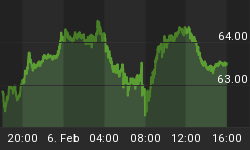Intel is buying chip maker Altera. Charter is buying Time Warner Cable. All the big drug makers are buying all the mediums-sized ones.
Great news, right? If these huge companies with their top-of-the-line analytical tools and deep insight into their markets think paying way up to build empires is wise, then the stock market, far from being overvalued, must be cheap.
Right. Except that history says the opposite. One of the best signals that a bubble is about to burst is rich people with too much money doing stupid things. And as Mitt Romney likes to say, corporations are people too -- which means they're prone to exactly this kind of herd behavior.
For proof of this you need only recall the last bubble, when household name companies were buying out their peers with abandon (i.e., with hundreds of billions of dollars of other people's money). Giants like Amro Holding NV, Equity Office Properties, and Alcan Aluminum, among many, many others were all merged into global multinationals at prices that seemed to imply blindingly-bright futures for their industries. (A complete, shockingly-long list of the acquisitions attempted and/or completed in 2007 is available here.)
As it turned out, these were terrible deals for everyone except the CEOs of the takeover targets, who got to leave at the top. And 2007 was par for the course; the same thing happened at the peak of the tech stock and junk bond bubbles. Seen through this historical lens, today's orgy of takeovers at record-high prices implies at least two things:
-
Corporations have copious free cash, due mostly to their ability to borrow at historically low interest rates, but relatively few opportunities to build value by turning that cash into new factories. So instead they choose to "rationalize" their industries by buying up the competition, closing redundant factories, laying off unneeded workers and hoping that the sum ends up being more valuable than the parts. The immediate result, however, is fewer workers with good jobs, lower growth for the economy as a whole, and therefore falling sales for those newly-rationalized industries.
-
Corporate CEOs are tired of the drudgery of actually running a business and have grown cocky after years of rising share prices. Combine these two attitudes with the afore-mentioned easy money and you get empire building. In other words, today's buyers are thinking mainly about future cocktail parties and industry conventions where they'll be treated like royalty. Shareholder value is taken for granted (because stock prices always go up, right?). The inevitable result is a string of deals done at prices that look insanely inflated a few years hence.
So is this 2007 (or 1999 or 1988) all over again? That won't be clear until the cycle turns, but if this isn't 2007, it's damn close.















